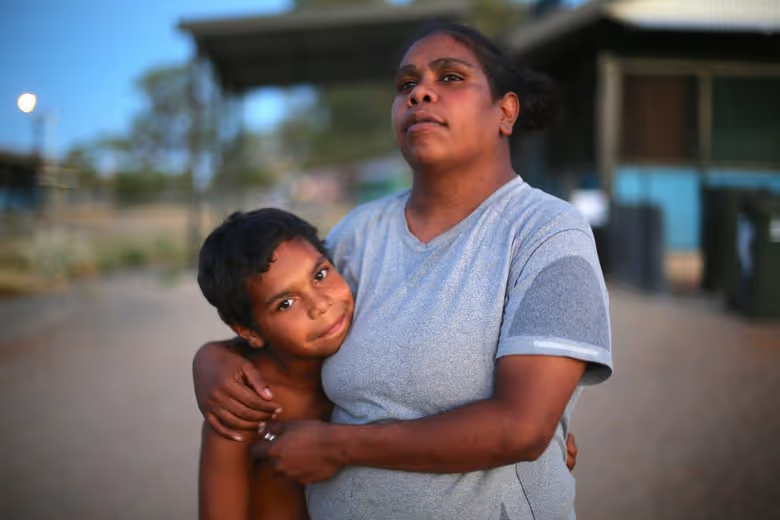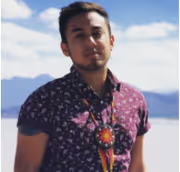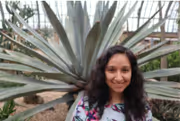Discussion Guide
Grades 6-8
Grades 9-10
Grades 11-12
In My Blood It Runs Discussion Guide Helpful Definitions and Concepts
Helpful Definitions and Concepts

- Epistemology: refers to ways of knowing, the nature of knowledge and truth and inquires about the sources of knowledge. A theory of knowledge that can be contextualized, geopolitical, embodied, an act of resistance and disobedience, and influenced by power.
- Pedagogy: refers to the practices and methods used for teaching and learning within school systems and community and family learning spaces.
- Racialization: Multiple ongoing processes of racial formations linked to macro political, sociological, and economic contexts that are then attributed to groups of people. These racial formations are socially constructed.
- Reciprocity: refers to the ways people care for one another, care for the environment, show gratitude without an endpoint in mind. It is dependent on establishing relationships that are respectful not just with humans, but also with more-than-human kin (i.e. Land, water, cosmos, ancestors).
- Relationality: refers to relationships with people, relations with the environment/Land, relations with the cosmos, and relations with ideas. Indigenous peoples identity is grounded in their relationship with the land and their ancestors.
- Settler Colonialism: The invasion of a territory that is already occupied and an act that uses violence, institutions, and force to justify that occupation. Therefore, it is a structure that involves the practice of taking Indigenous lands, denying Indigenous rights to those lands, and forming government and communities on those lands.
- Colonialism: A system of control by a country over an area or people outside its borders; the establishment, exploitation, acquisition, and expansion of colonies in one territory by people from another territory. This includes the exploitation of resources and enslavement of people.
- Aboriginal & Indigenous: Both are collective terms used to describe the original peoples of the land and their descendants. All Indigenous Nations have words in their own language that they use to define themselves, therefore use the term that Indigenous people chose to use themselves.
- Western/Colonial schooling and knowledge: Schooling and knowledge that comes from the Eurowestern tradition and was forced onto Indigenous nations during colonialism. Usually Eurowestern schooling focuses on objective truths and “official” knowledge which does not allow for other ways of thinking and learning.
- Country, Land, territory: refers to a living entity with a consciousness. For First Nations communities their connection to the Country forms the essence of their identity, ways of knowing and being, culture, and spirituality.
- Education (system): refers to the ways the Australian education system, the colonial education system, or mainstream education fails Indigenous children. This system teaches a settler/colonizer history and reinforces a settler/colonizer language.
- Medicine and healing: refers to the sacred traditional health practices, approaches, knowledge, gifts, and beliefs of Indigenous peoples. The ways that they integrate their Indigenous knowledge of traditional healing for the wellness and healing of their community and more-than-human kin. This can be inclusive of ceremony, plant medicine, prayer, stories, songs, music, being in relation, physical/hand techniques, etc.
- Arrernte: Aboriginal people who live on Arrernte lands or whose ancestors are original to Arrernte lands (territory in Australia) and who through self-determination continue to revitalize their languages and cultural practices.
- Historical memory: it refers to narratives and histories that are shared through familial memory, spiritual memory, embodied memory, dreams, stories, etc.
- Ancestral homelands: refers to the Lands that Indigenous peoples ancestors are original to. As descendants, Indigenous peoples continue to honor and be in relation with their ancestral homelands which include their relations with animals, plants, waters, skies, and each other.
- Sovereignty: refers to a nation’s right to self-govern and establish their own laws and citizenship. Sovereign nations practice their cultural traditions, ways of knowing and being, and determine their own future.
- Storytelling and stories: refers to an oral tradition that has been used to pass knowledge from generation to generation. This knowledge, theories and ways of knowing and being are essential for Indigenous people to teach and learn about their relationships, cultural ways, sacred stories, history, values, spirituality and more.
- Settler and/or colonizer: refers to those who want the land, come to stay, and permanently occupy and assert unlawful ownership over Indigenous Sovereign Lands.
- Indigenous resurgence: An intellectual and cultural movement that shifts from settler colonial narratives and reframes and redirects towards Indigenous traditional cultural practices. It refers to Indigenous methods of political resurgence grounded in Indigenous thinking, theorizing, and Indigenous intelligence.


